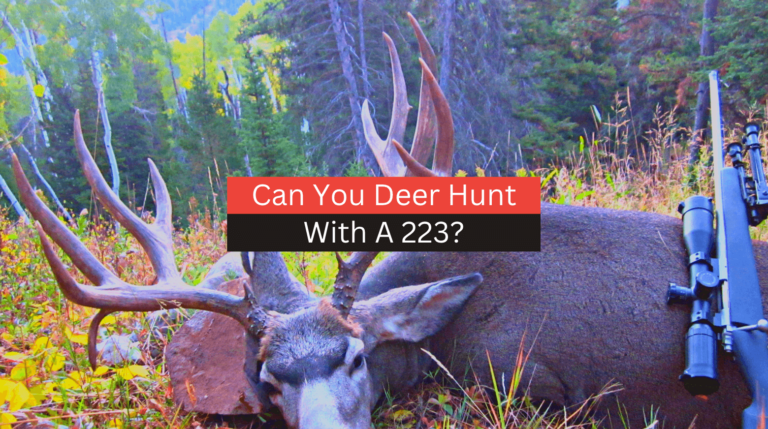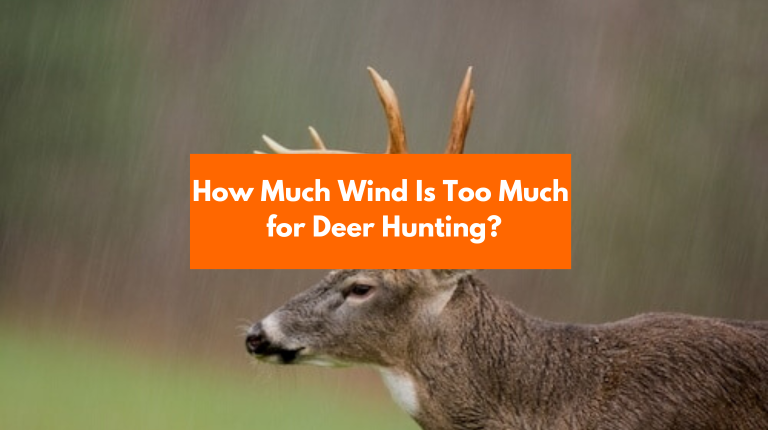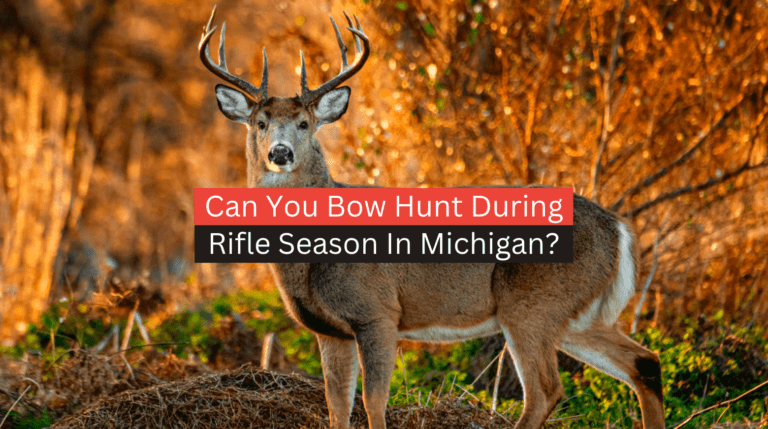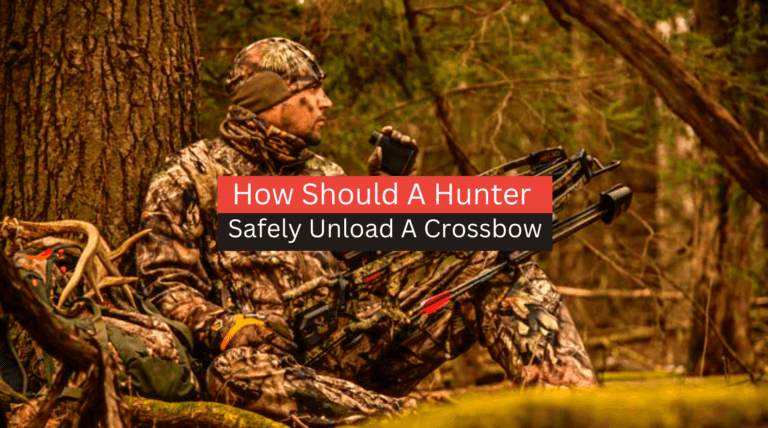Imagine you’re suiting up for a hunting trip with your friends, ready to venture into the great outdoors and create unforgettable memories. You’ve got your permits, your trusty equipment, and a thorough understanding of the hunting regulations for your state. But as you prepare, have you ever stopped to wonder who exactly designs these frameworks that dictate when, where, and what you can hunt?
In most states, a diverse assemblage of government bodies, wildlife organizations, and stakeholders work together to establish hunting regulations.
Join us as we delve into the intricate world of wildlife management and discover who’s behind the rules that keep our hunting experiences safe, ethical, and sustainable.
How are hunting regulations passed?
Hunting regulations play a vital role in conserving and protecting wildlife populations. Boards or commissions in the majority of U.S. states set and approve these regulations. The process involves holding public hearings, giving hunters the opportunity to hear proposed changes and voice their opinions. This also gives hunters a chance to suggest changes before the rules and regulations are enacted.
The main objectives of hunting regulations are to ensure the availability of game for future generations, establish hunting seasons, set bag limits, and define the rules of fair chase. By understanding this process, hunters can recognize their importance in driving wildlife conservation efforts across the country.
Why Are Hunting Regulations Passed?
Hunting regulations are an essential part of wildlife conservation and management. They are put in place to ensure the sustainability of animal populations and to protect endangered or threatened species from overhunting. By establishing limits on hunting seasons, bag limits, and fair chase rules, these regulations help maintain a healthy balance between wildlife populations and their habitats.
Moreover, hunting regulations serve to minimize conflicts between hunters and other outdoor enthusiasts, such as hikers and campers. By setting clear guidelines and rules, these regulations promote responsible hunting practices and ensure the safety of everyone involved.
Which Group First Proposed Hunting Laws?
The history of hunting laws in the United States can be traced back to individual states that first began to establish their own regulations. For instance, Wisconsin set its first deer season in the 1850s, and New Jersey followed suit in 1873.
The push for a nationwide approach began during the Progressive Era in the 1890s, which eventually led to the Lacey Act, America’s first federal wildlife management law. Theodore Roosevelt, an avid supporter of nature conservation, played a significant role in developing related agencies, such as the National Forest Service and the National Park System.
Where Can I Find My State’s Hunting Regulations?
If you’re looking for your state’s hunting regulations, the U.S. Fish & Wildlife Services is a great place to start. They offer a comprehensive list that provides information on hunting rules for every state. Alternatively, you can check the official websites of your state to find the hunting regulations.
For those interested in learning more about hunting safety and laws, organizations like Hunter-Ed offer safety courses in partnership with state agencies. These courses cover important laws, game identification, and responsible firearm handling, ensuring you have a solid understanding of your state’s hunting regulations.
Who sets the hunting regulations in Missouri?
The Missouri Department of Conservation (MDC) is responsible for setting hunting laws in Missouri. This state agency is responsible for managing and protecting the state’s fish, forest, and wildlife resources. Their comprehensive regulations outline hunting and trapping seasons, limits, and methods, as well as safety recommendations for hunters.
Along with setting and enforcing hunting rules, the MDC also provides necessary information and resources for hunters to ensure compliance. This includes guidelines on storing, transporting, and labeling harvested wildlife and the requirements for wearing hunter orange. By establishing and maintaining these regulations, the MDC aims to sustain healthy wildlife populations and promote safe and responsible hunting practices in Missouri.
What state has the most hunting?
In most states across the United States, hunting is a popular pastime that provides not only a source of food, but also a way to immerse oneself in nature and contribute to wildlife management. Among all states, Texas boasts the highest number of hunters, with more than one million individuals participating annually. This can be attributed to its vast landscape, abundant wildlife, and favorable hunting policies.
The Lone Star State offers a plethora of opportunities for hunting enthusiasts, with diverse habitats supporting a wide variety of game species. From deer and turkey to waterfowl and feral hogs, there is something for every hunter’s preference. Additionally, Texas has a long-standing tradition of responsible hunting practices, ensuring a sustainable and enjoyable experience for future generations.
Who sets hunting laws in Arizona?
In Arizona, the primary authority responsible for setting hunting laws and regulations is the Arizona Game and Fish Department. The department diligently works to ensure that hunters are well informed and educated about safe hunting practices, wildlife conservation, and adherence to hunting laws. For hunters between the ages of 10 and 13 who want to hunt big game, there are mandatory hunter education courses that help achieve this.
The department also collaborates with other organizations, such as the International Hunter Education Association-USA (IHEA-USA), to maintain high standards for hunter education and ensure reciprocity with other states and provinces.
How Is hunting regulated?
Hunting is regulated through a combination of federal, state, and local laws in the United States. Most states have a dedicated agency, typically a division of the state’s Department of Natural Resources or Wildlife, that oversees all aspects of hunting and wildlife management. These agencies develop and enforce hunting regulations, such as setting hunting seasons, establishing bag limits, and defining legal methods of taking.
In addition to state agencies, federal agencies like the U.S. Fish and Wildlife Service also play a role in regulating hunting, particularly for migratory birds. Local laws and ordinances can further restrict or regulate hunting activities within specific jurisdictions. Collaboration between federal, state, and local authorities ensures that hunting practices are sustainable and conservation goals are met.

Who Is Allowed to Hunt in the United States?
State wildlife agencies in the United States set the guidelines and requirements for obtaining hunting licenses, which regulate hunting. To ensure safety and responsible wildlife management, many states require first-time hunters to complete a hunter education course approved by the International Hunter Education Association (IHEA-USA).
This compulsory education ensures that hunters understand safety rules, conservation efforts, and local regulations. All U.S. states and Canadian provinces with mandatory hunter education requirements accept the National Hunter Education Certificate. Moreover, they recognize certifications issued by other jurisdictions if they meet IHEA-USA standards. As a result, hunters in the United States must be knowledgeable and ethical supporters of conservation and wildlife management.
What Type of Information Would You Find in a Hunting Regulations Publication?
In a hunting regulations publication, you would typically find essential information regarding various aspects of hunting safety, conservation, and legal requirements. One of the primary focuses of these publications is the licensing, permit, and stamp requirements for different types of hunting activities and game species. Additionally, hunting regulations provide guidelines on hunting methods, equipment, and season dates to ensure the sustainable management of wildlife populations.
Furthermore, hunting ethics, fair chase principles, and safe firearm handling practices are often discussed to promote respectful behavior among hunters. Lastly, these publications may also include details on hunting zones, public land access, and proper game handling techniques to ensure a successful and enjoyable hunting experience for all.
What are the hunter safety regulations for Missouri?
In Missouri, the Department of Conservation is responsible for setting and enforcing hunter safety regulations. They require hunters born on or after January 1, 1967, to complete a state-approved hunter education course before obtaining a hunting license. The course includes lessons on firearm safety, hunting laws, wildlife conservation, and ethical behavior while hunting. Wearing hunter orange during specific hunting seasons is also strongly recommended for the hunter’s safety.
Missouri regulations also prohibit hunting near flood waters or fire and taking wildlife from or across public roadways. Additionally, hunters must properly label and store any harvested wildlife and follow guidelines when transporting or giving it away. The state also ensures reciprocity with other jurisdictions, accepting hunter education certifications from other states or countries that meet the International Hunter Education Association – USA (IHEA-USA) requirements.
Who has to have hunter education in Missouri?
In Missouri, hunter education is mandatory for individuals born on or after January 1, 1967 or those who are 16 years of age or older and plan to use a firearm for hunting alone. This requirement is in place to ensure that hunters understand and follow safety rules, and wildlife conservation laws and demonstrate responsible behavior while hunting.
The Missouri Department of Conservation and the International Hunter Education Association-USA (IHEA-USA) both offer state agency-approved courses that people must complete in order to obtain a hunting license. This certification is recognized in several U.S. states, Canadian provinces, and other countries with mandatory hunting education requirements, ensuring reciprocity for hunting activities in different jurisdictions.
Who is exempt from hunter education in Missouri?
In Missouri, hunters who were born before January 1, 1967, are exempt from completing the hunter education certification. This requirement is only applicable to those born on or after the specified date or who are 16 years of age or older. Additionally, hunters who will be using firearms to hunt alone must also complete the certification.
The Missouri Department of Conservation recognizes and accepts hunter education certifications issued by other jurisdictions that meet the official IHEA-USA requirements. This reciprocity ensures that hunters educated in other states or countries can hunt in Missouri without needing to undergo additional training.
Why are hunting regulations passed Unit 7?
Hunting regulations are crucial for the preservation of wildlife and the promotion of sustainable hunting practices. In the United States, wildlife management organizations primarily set these laws at the state level, which is the subject of Unit 7. These agencies work hand in hand with biologists and other experts to develop rules and regulations that aim to protect and manage animal populations.
The primary goal of these regulations is to ensure the longevity of wildlife by setting hunting seasons, bag limits, and equipment restrictions. Hunting seasons are usually planned around nesting and mating periods, during which hunting activities might directly harm animal populations. By imposing such limitations, hunting regulations create a sustainable framework that enables recreational hunters to enjoy their sport while preserving natural resources for future generations.
Furthermore, hunting regulations seek to promote ethical hunting behavior, ensuring that all participants adhere to safe practices and respect the rights of landowners, other hunters, and non-hunters. In doing so, regulations play a key role in fostering a responsible hunting culture centered around the conservation and appreciation of wildlife.

I am Sam Billings, an entrepreneur who runs a printing business. In my free time, I enjoy the thrill of the hunt and often spend hours pursuing game. I am passionate about hunting gear and equipment, and I take great pleasure in helping fellow hunters find the right gear for their needs. From rifles and scopes to clothing and accessories, I am always happy to share my knowledge and expertise.






